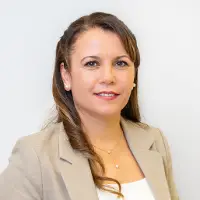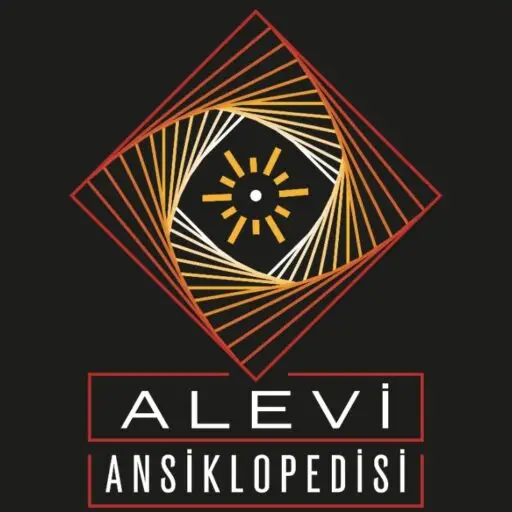Dedes: Transformation of Religious Leadership in the Alevi Community
* This entry was originally written in Turkish.
This entry examines the transformation of dedes—hereditary male religious leaders in Alevism—in response to migration, urbanization, and institutionalization since the 1990s. Traditionally embedded in rural village life and legitimized through sacred genealogy and oral tradition, dedes once held authority through intimate, face-to-face relationships with their communities. In recent decades, their roles have evolved significantly, particularly in urban and transnational contexts such as Turkey and Germany. Today, dedes function as multifaceted transnational actors: ritual specialists, religious educators, community leaders, and political advocates. The rise of Alevi cultural centers, diaspora associations, and efforts to standardize religious practice have shifted the basis of dede authority toward formal education, public visibility, and cross-border engagement. Since the 1990s, dedes have redefined their leadership to address the needs of dispersed, diverse, and increasingly institutionalized Alevi communities. In doing so, they have contributed to the reinforcement of collective identity and the political presence of Alevis in both national and transnational spaces. The evolving role of dedes underscores the adaptability of religious authority and its ability to mediate between sacred heritage and contemporary civic realities. As such, dedes have become central figures in shaping the cultural and political life of the Alevi community in transnational spaces.Overview
Within Alevism, the institution of the dede has historically served as the core of spiritual, moral, and communal leadership. Traditionally, dedes are hereditary male leaders descending from sacred lineages (ocaks), entrusted with mediating religious rituals, resolving disputes, and upholding communal ethics. Since the 1990s, however, their role has undergone significant transformation, driven by international migration, urbanization, and socio-political mobilization-especially among Alevi communities in Turkey and the diaspora.
Traditional Functions of the Dede
Historically, dedes functioned most effectively within rural, kinship-based village settings. Their legitimacy was rooted in sacred genealogy-as ocakzade (descendants of the Prophet Muhammad and Imam Ali’s family)-as well as in oral tradition and close interpersonal relationships with talips (followers). They presided over the cem, Alevism’s central ritual gathering, which served not only spiritual but also judicial and educational roles. In rural contexts, dede authority was characterized by its intimacy, sacredness, and moral depth-woven into the fabric of everyday life through direct, face-to-face interaction and inherited responsibility.
Transformation in Urban and Transnational Contexts
Since the large-scale migration of Alevis from rural Anatolia to urban centers and abroad, the traditional authority of dedes has been both challenged and reshaped after 1960s. In urban environments, where kinship ties are weakened and secular values more prominent, dedes can no longer depend solely on hereditary legitimacy. Instead, their roles have expanded to include new forms of authority rooted in education, institutional engagement, and public communication.
This transformation is particularly evident within the Alevi diaspora in Germany, where dedes increasingly function as transnational religious leaders. They travel between Turkey and Europe, conduct standardized rituals in newly established cemevis (Alevi houses of worship), and engage with both state institutions and multicultural societies. In these new contexts, dedes also represent Alevi interests on political, interreligious, and cultural platforms, contributing to the broader recognition and visibility of Alevism as a faith tradition.
New Roles in the Institutionalization of the Alevi Community
In urban and diasporic settings, dedes occupy hybrid roles that blend traditional ritual functions with responsibilities as community organizers, educators, and political advocates. Their involvement in Alevi cultural centers, federations, and associations reflects the ongoing institutionalization of Alevism as both a religious and cultural identity. Within these frameworks, dedes play a key role in standardizing religious practice-codifying rituals, producing religious texts, and developing curricula for Alevi religious education.
This process of institutionalization does not necessarily express a decline in religious authority but rather its reconfiguration. Whereas dedes once relied on oral tradition and village-based charisma, they now derive influence through their ability to communicate effectively within pluralistic, secular contexts and to address the educational, spiritual, and emotional needs of increasingly urbanized Alevi communities.
Emotional and Political Dimensions of Dedelik
The leadership role of dedes extends into the affective and political realms. Their ritual practices help consolidate Alevi collective memory, often shaped by historical narratives of marginalization, persecution, and resistance. Cem ceremonies and community events serve as sites of collective emotional bonding and the reinforcement of group identity. Dedes help channel shared feelings-fear, pride, trauma, solidarity-into organized expressions of cultural resilience.
Moreover, dedes play a critical role in the political empowerment of Alevis. As representatives in organizational structures, they mediate intra-community conflicts and act as interlocutors with external political and religious entities. This mediatory capacity, deeply rooted in their traditional function, is now reframed within a transnational and civic context.
Transnationalism and the Dede as a Political-Religious Actor
The emergence of transnational Alevi networks has further extended the reach and redefinition of dede leadership. Through organizational travel, ritual performance, and digital communication, dedes now serve dispersed communities across borders. They are key figures in the production of a diasporic Alevi identity-one that connects local experience with global awareness.
As political-religious actors, contemporary dedes navigate between tradition and reform, sacral authority and democratic representation. Their work sustains a vision of Alevism compatible with secular values, minority rights, and interreligious dialogue, positioning them as strategic figures in both intra-communal solidarity and inter-communal negotiation.
Conclusion
The changing leadership roles of dedes in the Alevi movement illustrate the dynamic nature of religious authority in response to modern challenges. While the genealogical and rural foundations of dede-ship have weakened, new sources of legitimacy-based on education, organizational efficacy, and transnational relevance-have enabled the institution not only to survive but to evolve. Dedes today embody a flexible form of religious leadership that bridges ritual continuity with sociopolitical engagement, sustaining Alevism as both a spiritual tradition and a mobilized religious and cultural identity.
Coşan Eke, Deniz. 2021. The Changing Leadership Roles of Dedes in the Alevi Movement: Ethnographic Studies on Alevi Associations in Turkey and Germany from the 1990s to the Present. Bielefeld: transcript Verlag.
Dressler, Markus. 2006. “The Modern Dede: Changing Parameters for Religious Authorities in Contemporary Turkish Alevism.” In Speaking for Islam: Religious Authorities in Muslim Societies, edited by Gudrun Krämer and Sabine Schmidtke, 269-286. Leiden: Brill.
Kaplan, İsmail. 2013. “Dedes und Anas bilden sich für ihre Dienste: Fortbildungsprogramm der Alevitischen Gemeinde Deutschland e.V. für alevitische Geistliche.” In Ocak und Dedelik: Institutionen religiösen Spezialistentums bei den Aleviten, edited by Robert Langer, Hüseyin Ağuiçenoğlu, Janina Karolewski, and Raoul Motika, 329-346. Frankfurt am Main: PL Academic Research.
Langer, Robert, Hüseyin Ağuiçenoğlu, ve Janina Karolewski (eds.). 2013. Ocak und Dedelik: Institutionen religiösen Spezialistentums bei den Aleviten. Heidelberger Studien zur Geschichte und Kultur des modernen Vorderen Orients. Frankfurt am Main: PL Academic Research.
Yaman, Ali. 2011. “Geçmişten Günümüze Dedelerin Misyonu ve Değişim.” Dosya: Alevilik 2 (6). Erişim tarihi 19 Aralık 2018. http://dem.org.tr/dem_dergi/6/dem6mak6.pdf.
Sökefeld, Martin. 2002. “Alevi Dedes in the German Diaspora: The Transformation of a Religious Institution.” Zeitschrift für Ethnologie 127: 163-186.


